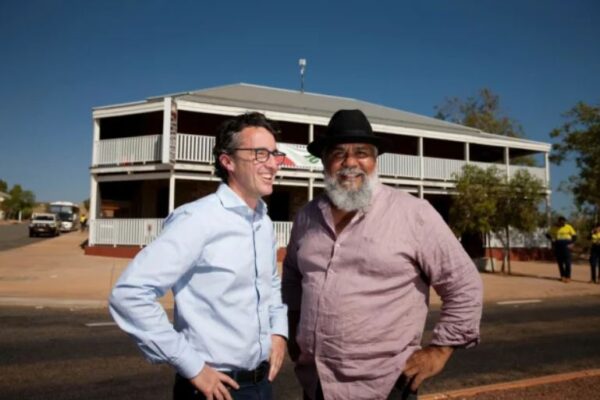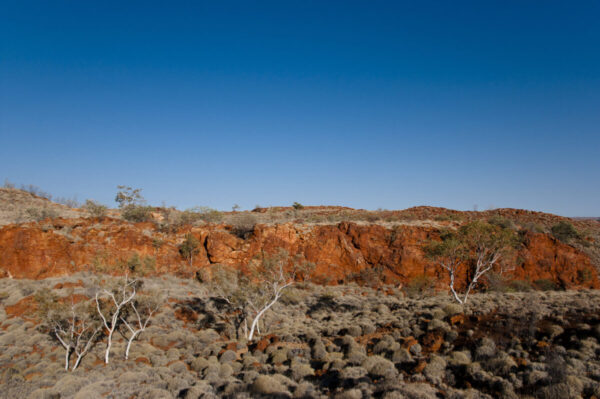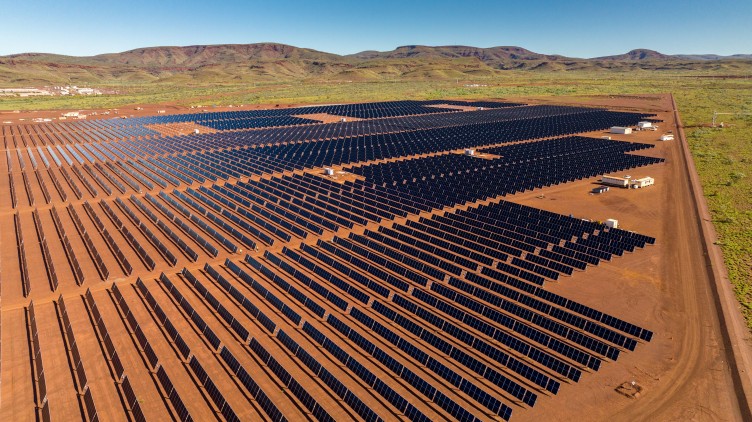The Yindjibarndi Energy Corporation (YEC) has signed a memorandum of understanding (MOU) with Rio Tinto to study and evaluate a range of renewable energy projects including wind and solar power as well as battery energy storage opportunities on Yindjibarndi country in the Pilbara.
YEC, a partnership between the Yindjibarndi Aboriginal Corporation and Philippines-based energy giant ACEN Corporation, said the immediate focus of the MOU is on “rapidly exploring” the potential development of a solar power generation facility for the supply of energy to Rio.
Initially, this is expected to involve the development of a PV project of between 75 MW and 150 MW near Karratha, in addition to approximately 300 MW of solar projects the miner is currently assessing.
Rio is seeking to develop about 600 MW to 700 MW of renewable generation to replace four gas-fired generators that power its Pilbara operations and generate about a third of its annual carbon output in Australia.
Simon Trott, chief executive of Rio’s iron ore division, said the company recognised it had a large carbon footprint in the Pilbara and was focused on repowering its operations with renewable energy through the end of the decade and beyond.
“The Pilbara is blessed with abundant year-round sunshine and strong winds at night, making it one of the most attractive places to harness solar and wind power for energy generation,” he said.

Image: ACEN
Rio said the collaboration opportunities currently being explored with YEC would, if progressed, be complementary to renewable energy developments on the company’s iron ore electricity grid.
YEC, which was launched in June to progress the development of major renewable energy projects on Yindjibarndi Ngurra (country) – an area covering approximately 13,000 square kilometres – plans to develop more than 3 GW of wind, solar and battery storage.
As part of the deal with ACEN, the Yindjibarndi people would get equity participation of 25% to 50% in all projects and give them approval rights for site selection. Yindjibarndi-owned businesses would be given preferred contractor status.
YEC’s initial plans include a first stage target of 750 MW of combined wind, solar, and battery storage with construction to commence within the next few years.

Image: ACEN
The corporation said the collaboration opportunities being considered by YEC and Rio relate to some of these Stage 1 projects.
ACEN International chief executive Patrice Clausse said in a statement that the agreement with Rio is a milestone towards the development of sustainable renewable energy development on Yindjibarndi Ngurra.
“It is the perfect blend of traditional significance and modern technology, designed to harness the limitless potential of the Pilbara’s sun and wind, while respecting the deep-rooted connection of the Yindjibarndi people with their land,” he said.
“Together, we are crafting an energy future that is not only renewable, but also renewing, by empowering local communities and contributing to a greener future.”
Rio aims to reduce its Scope 1 and 2 emissions by 50% by 2030 across its global operations, with approximately $11.87 billion (USD 7.5 billion) planned to be spent on decarbonisation projects. Australia’s largest iron ore exporter estimates it will need to ramp up its renewable generation to 1 GW in the Pilbara to help achieve the target.
This content is protected by copyright and may not be reused. If you want to cooperate with us and would like to reuse some of our content, please contact: editors@pv-magazine.com.









By submitting this form you agree to pv magazine using your data for the purposes of publishing your comment.
Your personal data will only be disclosed or otherwise transmitted to third parties for the purposes of spam filtering or if this is necessary for technical maintenance of the website. Any other transfer to third parties will not take place unless this is justified on the basis of applicable data protection regulations or if pv magazine is legally obliged to do so.
You may revoke this consent at any time with effect for the future, in which case your personal data will be deleted immediately. Otherwise, your data will be deleted if pv magazine has processed your request or the purpose of data storage is fulfilled.
Further information on data privacy can be found in our Data Protection Policy.